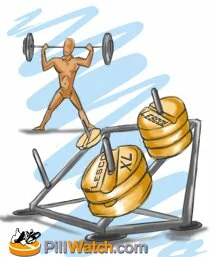
An invisible danger for the arteries and heart functioning – blood-fat – is nowadays threatened by several effective medications capable of fighting and reducing this danger in the human organism. One of such heroes is Lescol – a drug used to lower bad cholesterol levels in the blood stream, thus preventing arteries hardening and the risk of experiencing heart attacks and strokes. It can also help reduce the necessity of undergoing coronary revascularization procedures, such as angioplasty, bypass surgery, or stent insertion.
This medication is available in two forms – Lescol capsules (20 or 40 mg) and extended-release tablets (Lescol XL, containing 80 mg of the working component). Both drugs are for oral administration.
The main active ingredient in the drugs described is fluvastatin sodium, which is a water-soluble cholesterol-lowering agent. It works by inhibiting 3-hydroxy-3-methylglutaryl-coenzyme A (HMG-CoA) reductase. It is a component in the body responsible for low-density lipoprotein (bad cholesterol) production.
Lescol impact on HMG-CoA reductase results in slower cholesterol production. The process starts almost immediately after the treatment begins, and the real obvious results of reduced cholesterol levels can be observed in as soon as 4 weeks of Lescol administration.
Small doses of the Lescol capsules can be taken once daily at bedtime. Large doses (80 mg) can be split in two smaller ones taken twice a day. Extended release tablet of Lescol is used as a single dose before bedtime. The medication can be taken irrespective of food. Crushing, chewing, or breaking of the drug is not recommended.
Healthier cardiovascular system is an obvious and very important benefit of the medication. However, risks in the form of side effects may also accompany the treatment. At the same time, they are said to be mild or moderate, and they do not make the patients stop the treatment in the vast majority of cases. Common adverse reactions are: headache, upset stomach, diarrhea, muscle, abdominal, and back pain, flu-like symptoms (fever, tiredness, cough) and allergy. Such side effects as nausea, vomiting, constipation, insomnia, dizziness have also been reported, but their percentage was extremely low.
Though Lescol is said to be quite a safe medication, which, in addition, can be taken along with other drugs (in case a patient undergoes some treatment), it can nevertheless interact with some medicines. Among them are blood-thinning, antifungal, HIV and AIDS medications, antibiotics and stomach acid reducers. Other medicines, which can alter Lescol action, are cyclosporine, danazol, diclofenac, glyburide, nefazodone, phenytoin, rifampin, digoxin, isradipine, etc.
Antioxidant supplements, vitamins C, E, beta-carotene, and niacin will also interact with Lescol. Alcohol increases fluvastatin levels in the body; thus, drinking it should be avoided during the treatment period.

Though lowering bad cholesterol levels seems to be always beneficial for the body, some people may be advised against the treatment. For example, pregnant and breastfeeding women should not take Lescol, since it can cause birth defects. Those who suffer from diabetes, kidney or liver diseases, poor thyroid functioning, muscle disorders, or alcoholism are not recommended to use fluvastatin medicines.
Finally, it is necessary to emphasize that Lescol and Lescol XL are prescribed only in case if dietary changes and exercising proved to be ineffective in cholesterol fighting. However, even if the medicines are taken, the two other means of cholesterol elimination should not be abandoned. Physicians underline that medicinal treatment will provide the expected results only if used in combination with proper dieting and exercising.
| Tip for you : Sign-in with Your OpenID and post faster, easier and with easy access to all your past posts. | |
|
Your Nick: |
















